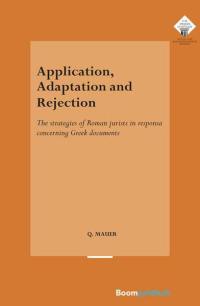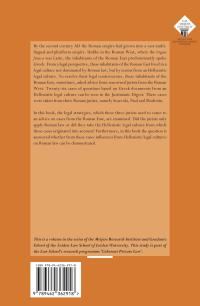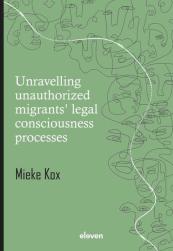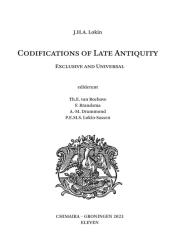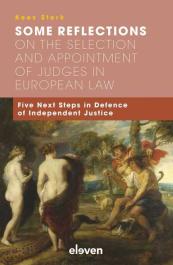Application, Adaptation and Rejection
The strategies of Roman jurists in responsa concerning Greek documents
By the second century AD the Roman empire had grown into a vast multilingual and pluriform empire. Unlike in the Roman West, where the lingua franca was Latin, the inhabitants of the Roman East predominantly spoke Greek. From a legal perspective, these inhabitants of the Roman East lived in a legal culture not dominated by Roman law, but by norms from an Hellenistic legal culture. To resolve their legal controversies, these inhabitants of the Roman East, sometimes, asked advice from renowned jurists from the Roman West. Twenty-six cases of questions based on Greek documents from an Hellenistic legal culture can be seen in the Justinianic Digest. These cases were taken from three Roman jurists, namely Scaevola, Paul and Modestin.
In this book, the legal strategies, which these three jurists used to come to an advice on cases from the Roman East, are examined. Did the jurists only apply Roman law or did they take the Hellenistic legal culture from which these cases originated into account? Furthermore, in this book the question is
answered whether from these cases influences from Hellenistic legal cultures on Roman law can be demonstrated.
This is a volume in the series of the Meijers Research Institute and Graduate School of the Leiden Law School of Leiden University. This study is part of the Law School’s research programme ‘Coherent Private Law’.


